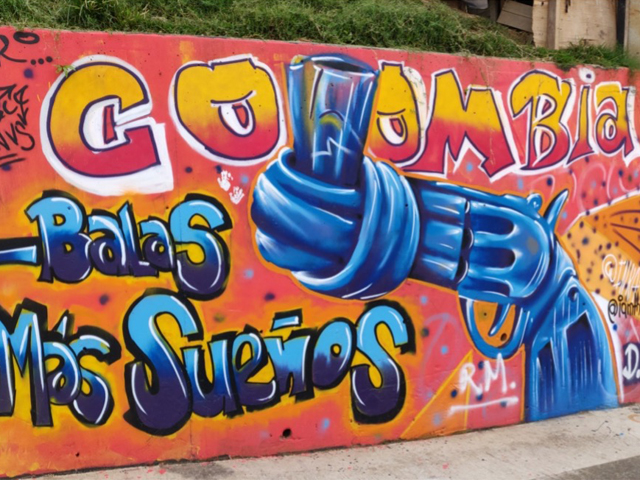
Call for chapter proposals – ‘The art of peace: Opportunities and blockages’
Editors: Stefanie Kappler, Birte Vogel, Oliver Richmond.
The proposed edited volume
This edited volume, targeted at a major university press, sits in the context of the AHRC-funded “The Art of Peace” project between The University of Manchester, Durham University and In Place of War.
The project interrogates to what extent art initiatives (broadly defined as an interface between politics, aesthetics, and social agency) can be integral part of peace formation efforts. This includes questions on the conditions under which the arts can promote locally-directed peace efforts and channel those into broader political movements, or, alternatively, what prevents them from doing so.
Here, peace formation assumes radical and critical grassroots attempts to intervene in power relations to produce a more positive and hybrid form of peace, traceable in peace agreements or constitutional reforms, redistribution of resources, or the recognition of subaltern claims by the state or international community.
The arts have increasingly come to be seen as a grassroots-oriented, politico-aesthetic site of agency and a platform that can bring about social change. They are a window into local politics, a site of resistance and a way of accessing local knowledge of peace, one we find is less easily coopted than more formal civil society.
There is, however, a lack of understanding about the relationship between the arts and peace formation at various stages of conflict amongst diverse actors, and their broader interaction with civil society, politics and governance, and international peacebuilding. This collection shows to what extent local art projects can play a role in peace formation processes or a broader national reform or peace projects, or what prevents artists from translating potentially transformative or radical ideas into visible political change.
The editors will provide a more general, conceptual introduction to these questions. Individual chapters should investigate particular case studies in which they focus on the potential of the arts to contribute to peace formation, and their limitations in the wider state level reforms peace requires.
We encourage nuanced analyses of this question as well as policy-relevant conclusions. Existing case studies include analyses from Bosnia-Herzegovina (street art), Colombia (hip hop), Lebanon/Syria (“artivism”) and the role of the arts in peace formation in the DRC.
We welcome a variety of case studies from a diverse range of geographical contexts and across art forms.
Provisional timeline
- Abstract submission deadline: 8 March 2021
- Notification of successful applicants: 12 March 2021
- Deadline for chapter submission: 30 April 2021
- Feedback on chapter: 21 May 2021
- Final revised chapter due: 12 July 2021
Format requirements
- Length of extended abstracts: 500 words – plus up to 5 key words
- Chapter length: 8,000 words
- May include one illustration (TBC with publisher
Please submit your 500 words abstract no later than 8 March 2021 to:
- Stefanie Kappler (stefanie.kappler@durham.ac.uk)
- Birte Vogel (birte.vogel@manchester.ac.uk)




0 Comments